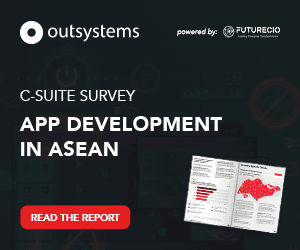How much is regulatory compliance? The Thomson Reuters  Annual Cost of Compliance survey (issued November 7, 2018) raises a predicament of the financial services industry: how does an organization ensure compliance given that a new regulatory alert is issued every 7 minutes?
 Karen Man (photo right), a partner in Baker McKenzie's (BM) Financial Services group in Hong Kong says the increased complexity of regulatory developments in areas such as AML or regulatory reporting has played a role in the development of RegTech in Hong Kong. The growth in demand for e-services may have also played a part, as is the openness of the regulators to the adoption of RegTech by financial institutions.
Karen Man (photo right), a partner in Baker McKenzie's (BM) Financial Services group in Hong Kong says the increased complexity of regulatory developments in areas such as AML or regulatory reporting has played a role in the development of RegTech in Hong Kong. The growth in demand for e-services may have also played a part, as is the openness of the regulators to the adoption of RegTech by financial institutions.
RELATED: Sizing up and humanizing RegTech in 2019
Who drives RegTech?
RegTech first came out with the goal of using technology to facilitate regulatory compliance. It applies to both sides of the compliance border: those that regulate the markets, and those that must comply with the regulation if they want to continue to participate (as a business) in the market.
 Paul Haswell (photo left), a partner at Pinsent Masons in Hong Kong, said: “The heart of RegTech is ultimately about empowering and protecting consumers. Remember that more and more banking customers do all of their banking online or with devices. They want convenience and the banks need to step up or else face losing market share to newcomers, or indeed to the likes of Alipay and WeChat.”
Paul Haswell (photo left), a partner at Pinsent Masons in Hong Kong, said: “The heart of RegTech is ultimately about empowering and protecting consumers. Remember that more and more banking customers do all of their banking online or with devices. They want convenience and the banks need to step up or else face losing market share to newcomers, or indeed to the likes of Alipay and WeChat.”
BM’s Man believes that RegTech should be driven by the market, with an understanding by all participants of the regulatory expectation.
“In HK, we have seen such support from regulators on RegTech in many different ways, such as the issuance of regulatory guidelines on compliance (e.g., to facilitate e-KYC for client onboarding) or allowing tech firms to participate in regulatory sandboxes so as to receive regulators’ early feedback on projects and ideas,” she added.
The regulator as a driver of Regtech will only work if the regulators are quick, responsive and make their decisions based on market feedback, and are keenly attuned to international trends and developments, noted Haswell.
“One of the key strengths of MAS in in the way it welcomes feedback and collaboration from outside of the public sector, inviting participants from all across the private sector and academia – from the Artificial Intelligence and Data Analytics (AIDA) Grant announced in December 2017, to their regulatory sandbox, as well as their research and development partnerships with universities such as the Massachusetts Institute of Technology. Regulations should be designed to address problems created by the market, without being unduly difficult to comply with,” elaborated Haswell.
 For his part, IDC Financial Insight’s managing director for Asia-Pacific, Cyrus Daruwala (photo right), says regulators today are no longer inhibitors but investors, citing both the Monetary Authority of Singapore’s S$250 million war chest to help incubate startups. Not to be outdone, the Hong Kong government has appointed the Cyberport as the Fintech innovation hub of the city.
For his part, IDC Financial Insight’s managing director for Asia-Pacific, Cyrus Daruwala (photo right), says regulators today are no longer inhibitors but investors, citing both the Monetary Authority of Singapore’s S$250 million war chest to help incubate startups. Not to be outdone, the Hong Kong government has appointed the Cyberport as the Fintech innovation hub of the city.
Regtech focus in 2019
Man cites a number of initiatives by the city’s de facto central bank to launch a series of RegTech specific projects focusing on AML/CFT surveillance, prudential risk management, and compliance and machine-readable regulations. “The regulators in HK are also increasingly looking at Suptech (supervisory technology) to help with their supervisory processes and activities,” BM’s Man added.
Reflecting on the 2018 publication of the Open API initiative by the HKMA, Haswell is cautious of any potential outcomes but at the same time is optimistic that such effort would provide the sort of conditions leading to a big bang of new products and new ideas much like what the PSD2 is doing for Europe.
He has high expectations of “a great deal of innovation” coming out of Australia. The Financial Services Royal Commission in Australia has been ongoing since December 2017, with an interim report published in September 2018 that, in no uncertain terms, criticized some of the existing practices by financial services industry and the Australian Securities and Investments Commission. “As the Royal Commission continues and eventually comes to end, we would expect incumbents and startups alike to implement its conclusions by thinking outside of the box and using technological solutions,” he added.
For certain, 2019 will not be an easy ride for both the industry and the regulators. IDC’s Daruwala laments that every time a new regulation comes out banks have to set aside as much as a billion dollars to provision it.
Figure 1: Firms who expect the total compliance team budget to be the same or more over the next 12 months
Source: Thomson Reuters Regulatory Intelligence - Cost of Compliance 2018
“The lamentable part is that accurately benchmarking total compliance spend is near impossible given the wide variations in scope, activities, and definition of what is covered by compliance, ranging from cyber resilience and data security to conduct matters,” noted the Thomson Reuters report.
Still, 61% of respondents to the Thomson Reuters compliance survey anticipate an increase in their total compliance budget in 2018, up 53% in 2017. On the topic of technology and its impact on regulatory compliance, 41% expect to spend more time assessing Fintech and Regtech solutions over the next 12 months, compared to 33% in 2017.
“That is a ridiculous part. As you can understand, governance and compliance have no ROE (return on equity). Regulation is unnecessary as it costs a lot. But it gives [banking] customers a basket of protection,” he concluded.
Watch the full video and listen to Daruwala shares his views on:
- How Regtech has changed the regulatory landscape: 0:05-1:53
- The biggest challenge in the rollout of new regulations: 1:53-3:14
- What hasn’t changed since RegTech: 3:14-4:23
- Regtech innovation coming in 2019: 4:23-5:27






